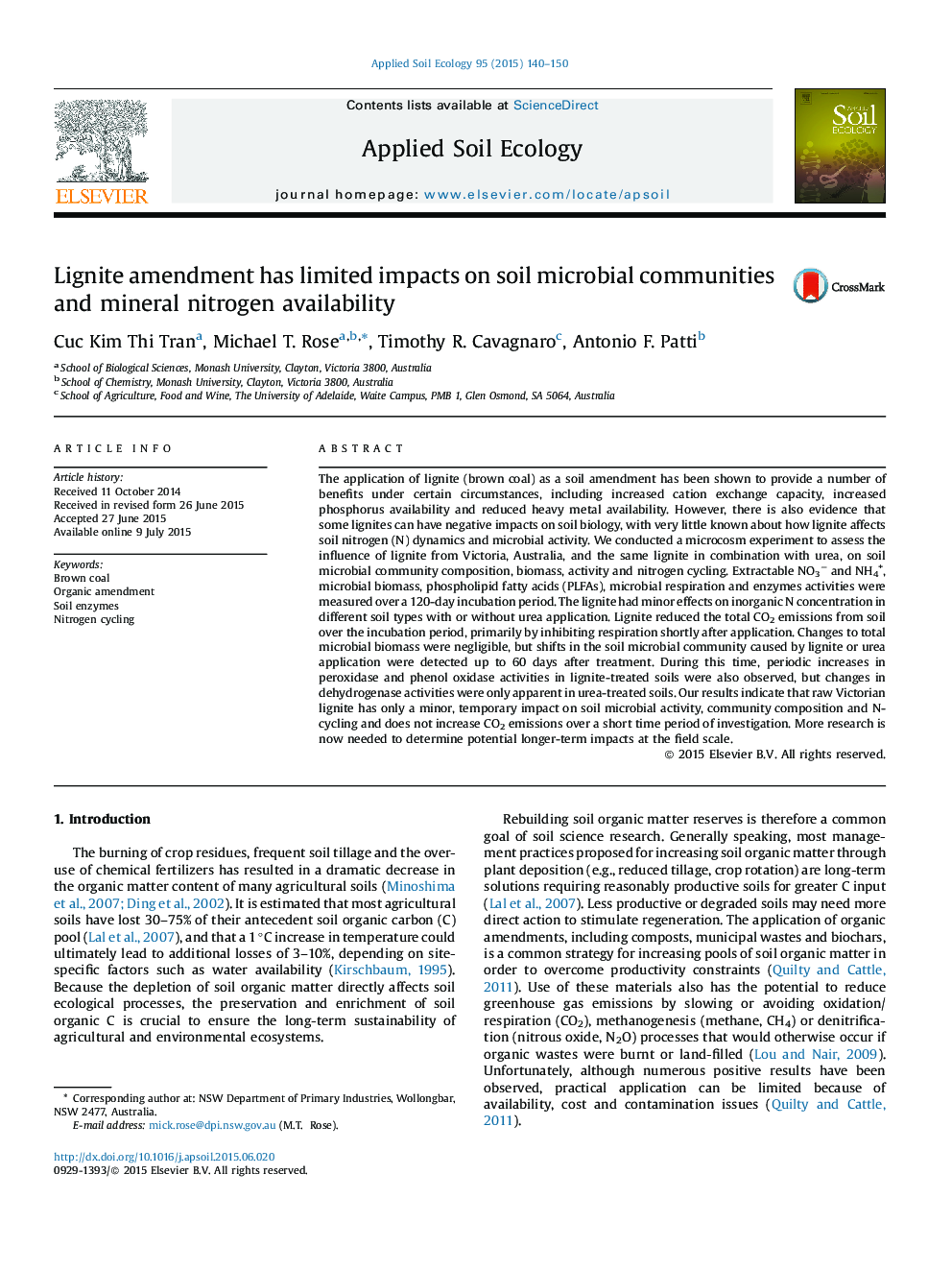| Article ID | Journal | Published Year | Pages | File Type |
|---|---|---|---|---|
| 4381942 | Applied Soil Ecology | 2015 | 11 Pages |
•The effect of lignite on soil microbial communities and function was investigated.•Lignite application reduced CO2 emissions in the short term.•Soil ammonium and nitrate concentrations were not affected by lignite.•The effect of lignite on soil microbial PLFA profiles was transient.•Soil amendment with lignite is unlikely to negatively impact soil C and N-cycling.
The application of lignite (brown coal) as a soil amendment has been shown to provide a number of benefits under certain circumstances, including increased cation exchange capacity, increased phosphorus availability and reduced heavy metal availability. However, there is also evidence that some lignites can have negative impacts on soil biology, with very little known about how lignite affects soil nitrogen (N) dynamics and microbial activity. We conducted a microcosm experiment to assess the influence of lignite from Victoria, Australia, and the same lignite in combination with urea, on soil microbial community composition, biomass, activity and nitrogen cycling. Extractable NO3− and NH4+, microbial biomass, phospholipid fatty acids (PLFAs), microbial respiration and enzymes activities were measured over a 120-day incubation period. The lignite had minor effects on inorganic N concentration in different soil types with or without urea application. Lignite reduced the total CO2 emissions from soil over the incubation period, primarily by inhibiting respiration shortly after application. Changes to total microbial biomass were negligible, but shifts in the soil microbial community caused by lignite or urea application were detected up to 60 days after treatment. During this time, periodic increases in peroxidase and phenol oxidase activities in lignite-treated soils were also observed, but changes in dehydrogenase activities were only apparent in urea-treated soils. Our results indicate that raw Victorian lignite has only a minor, temporary impact on soil microbial activity, community composition and N-cycling and does not increase CO2 emissions over a short time period of investigation. More research is now needed to determine potential longer-term impacts at the field scale.
